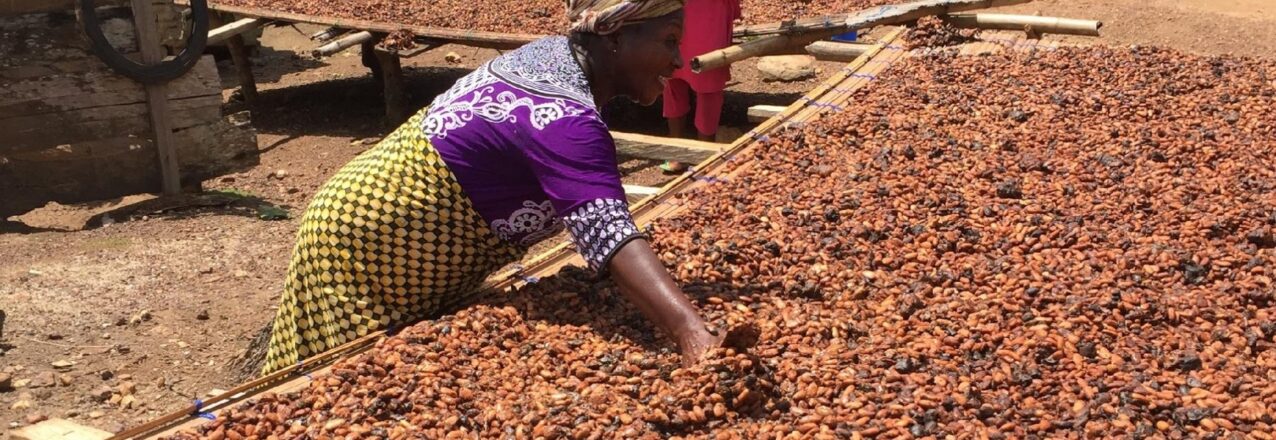Due to its commercial value, cocoa is considered a man’s crop and gender inequality is pervasive in the cocoa sector. Indeed, although women are involved in nearly all activities of cocoa production in Ghana, their role and contributions remain unseen, undervalued, and often unpaid. This is caused by a combination of unequal access to productive resources, unbalanced power relationships, and harmful gender norms. Land ownership is a key factor. Because women typically do not own or lease land on their own, they are often not perceived as farmers by themselves or others and have low representation in cocoa producer groups, which are an important vehicle for receiving inputs, extension services, financial services, and technology. However it was found that when women are allocated a parcel of land to control and manage, they recognize themselves as farmers, as do others. Women also have little to no involvement in the sale of cocoa and limited decision-making power over use of income from cocoa production. Evidence from other women’s empowerment initiatives has shown that empowering women in the cocoa value chain leads to increased productivity and benefits to their households.
To address these barriers, USAID is working with Ecom Agroindustrial Corp. (ECOM), a global commodity trading and processing company specialized in coffee, cocoa, and cotton, as well as brands who buy cocoa from ECOM such as Hershey, to strengthen women’s land rights and economically empower women in the cocoa value chain in Ghana. Implemented by the Integrated Land and Resource Governance (ILRG) program, the two-year activity will engage both the sustainability and commercial branches of ECOM to integrate gender equality into its standard business operations and core training programs offered to farmers. This will provide ECOM with the knowledge, resources, and best practices to work with community members to empower women in Ghana and potentially more broadly in West Africa. This work could ultimately scale benefits to nearly 1 million farmers: 120,000 cocoa farmers ECOM engages with in Ghana and over 800,000 in Côte d’Ivoire and Nigeria.
An initial gender assessment was carried out between November 2020 and March 2021 to provide a better understanding of the barriers and opportunities for gender equality, social inclusion, and women’s economic empowerment in the cocoa value chain in Ghana, particularly focused on ECOM’s current practices and capacity regarding gender equality and women’s empowerment, women’s access to productive resources in target cocoa communities, and crop diversification opportunities for women. The gender assessment included a review of existing primary and secondary data, interviews with 40 ECOM staff and local stakeholders, and focus group discussions with 122 women and men farmers in Assin Fosu and Antoakrom Districts.
This brief shares a summary of the findings and recommendations according to five domains: 1) laws, policies, regulations, and institutional practices; 2) social norms and beliefs; 3) gender roles, responsibilities, and time use; 4) access to and control over assets and resources; and 5) patterns of power and decision-making. Detailed findings and recommendations are available in the full gender assessment report.


